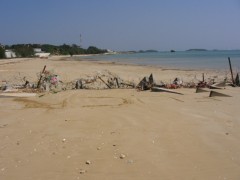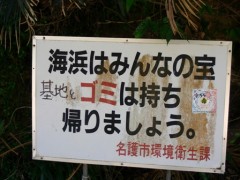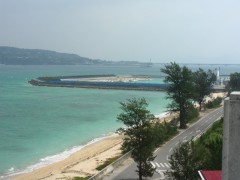12 February 2010
Film"The Barbarian and the Geisha" John Wayne in Japan
John Wayne played as U.S. diplomat, Townsend Harris who arrived in Shimoda, Japan 1850's. All the scenes were filmed in Japan 1950's.
Surprised to know John Wayne, a famous cowboy actor was in Japan for filming such historical story.
I do not know if the film was based on accurate historical facts. The movie overall was not bad but the actress who played as Geisha serving Harris did not act well.
It is a story of US diplomacy which forced or persuaded Japan to open up door to the rest of the world. That was the beginning of Japan's modernization after more than 2 centuries of Seclusion period. Ending seclusion was a big controversy at that time and there was pros and cons among the government. Some politician tried to assasinate pro-open Japanese politician and Harris.
This film made me think what was the relationship between two countries. After the first treaty was signed between the two, the both worked together to counter Russia in 1904-1905 but in 1940's the two entered the war. U.S. won, occupied and democratised Japan.
After the second world war, the world went through the Cold War Period, Japan sided with the U.S. That gave Japan favourable position against the U.S. The U.S. had to treat Japan nicely to prevent communism from spreading in Asia. Japan could receive great financial aid from the U.S. and export goods to the U.S. market.
The U.S. won the Cold War. The U.S. became only superpower of the world.
But 911, the war in Afghanistan, Iraq, and Lehman shock changed the things.
The U.S. is no longer dream world nor role model for the democracy.
I, myself recently stopped being very much familiar with the U.S. The U.S. has become one of foreign countries I know.
Especially since military issues such as deployment of CVN 73 in Yokosuka and relocation plan for Futenma base in Okinawa were raised.
I don't like America any more even though I lived there for more than 5 years as college student and know good people over there.
Things changed.
Japanese attitude towards American has really changed recently, the number of Japanese students studying in the U.S. has dropped almost by half from the period I was there and sales of Hollywood films dropped drastically in recent years. Now more than half of the sales comes from Japanese films, but a few years ago it was opposite.
Well, any diplomacy among states is purely based on pragmatism unlike personal relationship.
We have things owing to the U.S. but America is America. Japan is Japan.
After all, most people like to live in their homeland because that is where they get used to living.
18:54 Posted in Film, Politics, US-Japan relationship, USA issues | Permalink | Comments (0) | Tags: history
09 February 2010
Japan is a Ski Paradise!
I was fortunate to be born as Japanese. I went to 3 places for skiing this year. All three places were fabulous.
I have skied in foreign countries such as Colorado in US and Switzerland in the past.
That was great experiences.
But I enjoyed skiing in Japan. Not just skiing but also hot spring after skiing.
Last week I went to Zao Hot Spring Ski Resort in Yamagata Prefecture. It has great view point with frozen trees (Soft rime) on top of mountain.
It makes you feel being in Fairy Tale.
24 January 2010
US military base Relocation Plan was rejected by local citizens
A candidate who opposes US military's relacation of Futenama Marine base in Okinawa to Henoko located on the same island won the mayor election of Nago city which includes Henoko area. Former mayors all agreed the relocation plan. The below photo is Henoko beach. The relocation plan is to landfill beautiful beach and ocean that endangers dugongs and other wild life. More than 30 of new species were found by WWF Japan in this area. Even U.S. environmetalist groups oppose the plan by suing their government. S.F. Federal Court ordered the military to review the plan.

This relocation plan has been controversial since new ruling party took power in September. New ruling party, Democratic Party of Japan announced alternative plan but it has yet reached agreement with the U.S.
This mayor election result proved to be Henoko plan is no longer feasible.
So where would Futenma be relocated to? Well, that is their business, not ours. To Guam where local citizens have no right to choose American President or mainland or reduce the marines.
The U.S. military is useless in this country. It was important during the Cold War era because its presence functioned as deterrent to Soviet Union and we could get financial aid from the U.S. and export Japanese goods to the U.S. market in exchange for providing bases to the U.S. which countered communism.
Now Soviet Union fell down, the Cold War ended. Not just Futenma, Kadena, Yokosuka, Yokota, Atsugi, Zama, Misawa, Iwakuni, Sasebo, all should be gone. We can protect our country ourselves, in fact we have to anyway.
The below photo is sign near the beach that says "Beach is our treasure. Take garbage (and base) to your home. Environment and Sanitation Department of Nago City." (and base) is handwritten.

U.S. military, GO HOME where you belong!!
23:48 Posted in Japan News, Politics, US-Japan relationship, USA issues | Permalink | Comments (1) | Tags: military
13 January 2010
Film"W." He was a nice spoiled man!
A story about former President of the United States, George W. Bush. He was born in wealthy elite family.
He never had any problem doing what he wanted to do because his family's wealth and name.
So he could attend Yale and Harvard. He became a governor of Texas and finally the most powerful man in the world.
The film featured how he and his administration made a mistake in provoking the war in Iraq.
There was no WMD, but they made it up to conquere the oil mines in the Middle East.
Luckily, the media and public supported the war because of the fear caused by 911 attack.
After all, the U.S. system proved to be problematic by letting such spoiled man become a leader of the country.
He was never self-made man. He never could accomplish anything by himself. Always relying on his father's power.
The U.S. has been actually feudal society ruled by dynasties. This article describes the detail and this novel tells it in drama format.
America was drastically changed by this man in a very bad way. The U.S. is now in big economic crisis having huge debt and getting involved in two failed wars.
Recently I and other Japanese have to complain about the U.S. very often.
Well, America is not dream country to me any more.
21:50 Posted in Film, Politics, USA issues | Permalink | Comments (0) | Tags: bush, iraq







